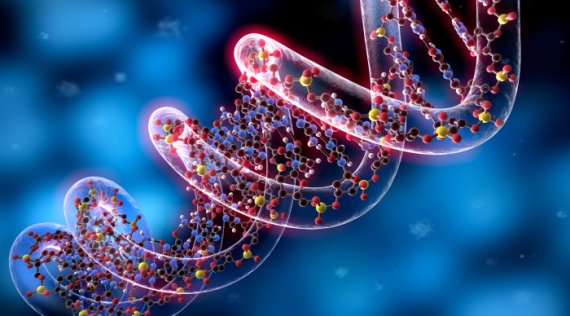Now that the biological knowledge is rapidly increasing, research can better understand and design biological systems such as viruses, cells or bacterial communities. Martins dos Santos, together with Dirk Bosch who is leading the strategic focal point of Synthetic Biology, brought the researchers of multiple knowledge units together. Whether they are working on viruses, bacteria, plants or algae, all the Wageningen researchers constantly adjust the design and production capacity of such a biological factory. They can thus learn from each other about how such a factory should be designed, built, and tested. But with synthetic biology you can also think of an artificial nose or tongue, in the shape of a bio-chip with human receptors, that can test the quality of our food.
After the brainstorm session Martin dos Santos already sees the outlines of the cross-border research clusters in Wageningen. The Centraal Veterinair Instituut (central veterinary institute) is working on viruses for vaccine development in livestock, physical chemist Renke de Vries is working on artificial viruses for AFSG. Both groups are working on mathematical modelling and designing viruses. There are also multiple groups working on photosynthesis and other light driven processes. One wants a light synthetic gene in a bacteria, so that light can beconverted to energy; the other wants to use light to control the production of biofuel in algae.
Martin dos Santos also sees a special collaboration occurring between microbiology that research the bacterial composition in our intestines, and the ecologist that study the microbial communities around plants in soil. ‘The principles are the same. First you try to understand such a community: which combinations of bacteria work well, why and in what manner? You need mathematical models for that. Then you try to see if you can control such a community, to fight obesity or to increase the biodiversity of soil.’
The researchers, of both the university as the DLO, can soon hand in research proposals for this investment theme. The goal is to have about one and a half to two million euro available per year for this investment theme. The first project will start in the beginning of 2016. The aim is to construct fundamental knowledge and to connect this to applied research so that new concepts, processes and products can arise. ‘Our mission is to expand the potential of nature.’ These developments must take place in a socially responsible and safe way. That is why he wants the contribution of the Social Sciences Group and RIKILT to research the social aspects of the synthetic biology.
Martin dos Santos has also managed to get a film festival about synthetic biology to Wageningen. Which will take place in one and a half year. ‘The link between art and science ensures that you can dream about the possibilities of synthetic biology.’ Due to the many biology groups here in Wageningen, he thinks that Wageningen can grow to be Synth City.
Already want to see some clips?

